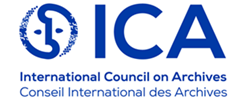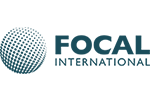2019 JTS: Preserve the Legacy. Celebrate the Future.

The CCAAA will hold its 2019 Joint Technical Symposium from 3-5 October 2019 at the Netherlands Institute for Sound and Vision (Hilversum, The Netherlands).
The Joint Technical Symposium (JTS) is an international scientific and technical event dealing with matters of particular importance to audiovisual archives and archivists. Organized every few years since 1983 by the member organizations now forming the Coordinating Council of Audiovisual Archiving Associations (CCAAA), it provides an opportunity for colleagues around the world and those interested in the field to meet and share information about the preservation of original image and sound materials. The latest JTS took place in Singapore in March 2016.
The Joint Technical Symposium provides an opportunity for audiovisual archiving experts from different backgrounds to come together, share new and upcoming technical advances in our field, and take positions that go beyond the boundaries of specific formats or domains. It is an occasion to inform each other about what’s going on in our field and seek cross-fertilization. At a time when the digital world is converging, we as members of CCAAA organizations have the opportunity to discuss technical issues and agree on how technologies best position us for the future of our field.
Please note that the upcoming 2019 JTS will be held jointly with IASA’s 50th Anniversary conference at Sound and Vision and will share a collaborative day of workshops on 3 October 2019. When deciding whether to submit proposals to JTS or IASA, please consider the topics provided in the two conferences’ calls for proposals. The program committees may suggest moving proposals to the other conference. Please indicate in case you do not wish this to happen.
Questions? Contact program@jts2019.com.
Call for papers
The Program Committee invites session proposals related to the 2019 theme "PRESERVE THE LEGACY. CELEBRATE THE FUTURE.” Proposals are welcome from all areas of archival practice, digital initiatives and research in our fields. Proposals should have a technology focus for either born-digital collections, digitised collections or collections still to be digitised. We suggest paper proposals to address one or more of the following topics:
1 BIG COLLECTIONS, BIG ASSETS, BIG DATA
- Artificial intelligence in media management tools: opportunities for automating archival practices by means of e.g. machine learning and automated extraction of metadata
- Big files, big data? Transcoding, managing and transporting large files throughout the audiovisual lifecycle
- Measuring archive use and impact: analytics, data science and big data mining
2 REFORMATTING AND RESTORING
- Redoing reformatting: bringing novel and innovative approaches to formats and technologies
- Media preservation beyond the linear domain: solutions for preserving interactive media formats
- Artificial intelligence in restoration: what can it offer and what's the risk?
3 PROGRAMMES AND SOLUTIONS
- Programmatic support for digitization/preservation: technical, strategic and financial perspectives (or the lack thereof)
- Low-cost solutions for ‘archives at risk’: technological and strategic developments such as DIY workflows, scaling up through collaboration or making outsourced digitization affordable
- Learning from your neighbor: practices from other domains to consider for audiovisual conservation and preservation (e.g. medical triage in first aid situations)
- Good enough practices: what are good, better and best approaches? How can we at least preserve the opportunity of preserving before we run out of time?
4 STATUS AND IMPACT OF TECHNOLOGY
- The future of archives as impacted by changing sound and moving image technologies
- How do technological developments impact the ethical use of our archive holdings?
- Bringing the archive to 21st century audiences: next-generation presentation infrastructures for heritage media
- How can and should we leverage new technologies to unlock the value of archives, to promote archives, to further the mission of audiovisual archiving and preservation?
- It’s a mad, mad non-standard world: standardization and industry uptake
- Open source and other development models for sustainable AV archive tooling
For more information about possible session types, proposal evaluation, and submission visit http://jts2019.com. The new deadline for proposals will be 22 February 2019. The programme committee intends to send authors feedback by 11 March 2019. Please submit your proposal via this form.
All submitted papers and session abstracts will be peer reviewed. The conference requires papers to be completed ahead of the conference. We request that authors submit their works and agree for them to be published under a Creative Commons Attribution Share-Alike license.
2019 JTS: Preserve the Legacy. Celebrate the Future.

The CCAAA will hold its 2019 Joint Technical Symposium from 3-5 October 2019 at the Netherlands Institute for Sound and Vision (Hilversum, The Netherlands).
The Joint Technical Symposium (JTS) is an international scientific and technical event dealing with matters of particular importance to audiovisual archives and archivists. Organized every few years since 1983 by the member organizations now forming the Coordinating Council of Audiovisual Archiving Associations (CCAAA), it provides an opportunity for colleagues around the world and those interested in the field to meet and share information about the preservation of original image and sound materials. The latest JTS took place in Singapore in March 2016.
The Joint Technical Symposium provides an opportunity for audiovisual archiving experts from different backgrounds to come together, share new and upcoming technical advances in our field, and take positions that go beyond the boundaries of specific formats or domains. It is an occasion to inform each other about what’s going on in our field and seek cross-fertilization. At a time when the digital world is converging, we as members of CCAAA organizations have the opportunity to discuss technical issues and agree on how technologies best position us for the future of our field.
Please note that the upcoming 2019 JTS will be held jointly with IASA’s 50th Anniversary conference at Sound and Vision and will share a collaborative day of workshops on 3 October 2019. When deciding whether to submit proposals to JTS or IASA, please consider the topics provided in the two conferences’ calls for proposals. The program committees may suggest moving proposals to the other conference. Please indicate in case you do not wish this to happen.
Questions? Contact program@jts2019.com.
Call for papers
The Program Committee invites session proposals related to the 2019 theme "PRESERVE THE LEGACY. CELEBRATE THE FUTURE.” Proposals are welcome from all areas of archival practice, digital initiatives and research in our fields. Proposals should have a technology focus for either born-digital collections, digitised collections or collections still to be digitised. We suggest paper proposals to address one or more of the following topics:
1 BIG COLLECTIONS, BIG ASSETS, BIG DATA
- Artificial intelligence in media management tools: opportunities for automating archival practices by means of e.g. machine learning and automated extraction of metadata
- Big files, big data? Transcoding, managing and transporting large files throughout the audiovisual lifecycle
- Measuring archive use and impact: analytics, data science and big data mining
2 REFORMATTING AND RESTORING
- Redoing reformatting: bringing novel and innovative approaches to formats and technologies
- Media preservation beyond the linear domain: solutions for preserving interactive media formats
- Artificial intelligence in restoration: what can it offer and what's the risk?
3 PROGRAMMES AND SOLUTIONS
- Programmatic support for digitization/preservation: technical, strategic and financial perspectives (or the lack thereof)
- Low-cost solutions for ‘archives at risk’: technological and strategic developments such as DIY workflows, scaling up through collaboration or making outsourced digitization affordable
- Learning from your neighbor: practices from other domains to consider for audiovisual conservation and preservation (e.g. medical triage in first aid situations)
- Good enough practices: what are good, better and best approaches? How can we at least preserve the opportunity of preserving before we run out of time?
4 STATUS AND IMPACT OF TECHNOLOGY
- The future of archives as impacted by changing sound and moving image technologies
- How do technological developments impact the ethical use of our archive holdings?
- Bringing the archive to 21st century audiences: next-generation presentation infrastructures for heritage media
- How can and should we leverage new technologies to unlock the value of archives, to promote archives, to further the mission of audiovisual archiving and preservation?
- It’s a mad, mad non-standard world: standardization and industry uptake
- Open source and other development models for sustainable AV archive tooling
For more information about possible session types, proposal evaluation, and submission visit http://jts2019.com. The new deadline for proposals will be 22 February 2019. The programme committee intends to send authors feedback by 11 March 2019. Please submit your proposal via this form.
All submitted papers and session abstracts will be peer reviewed. The conference requires papers to be completed ahead of the conference. We request that authors submit their works and agree for them to be published under a Creative Commons Attribution Share-Alike license.












